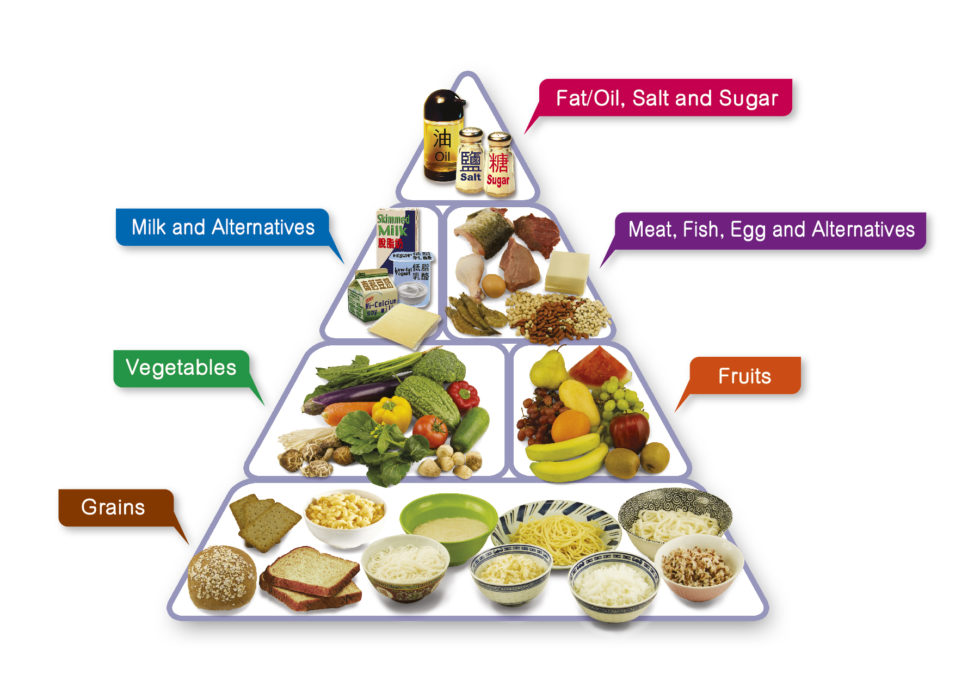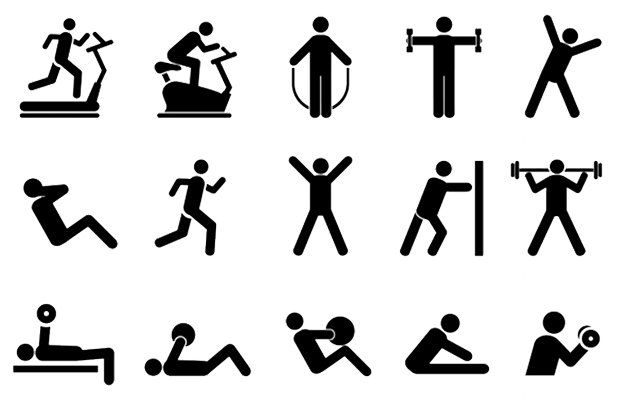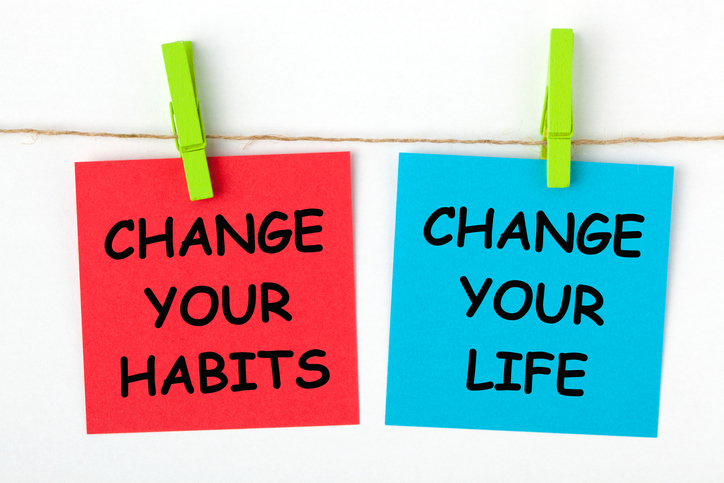Introduction
Welcome to our comprehensive weight loss guide, designed to assist you on your journey towards achieving a healthier and happier life. In today's world, where sedentary lifestyles and unhealthy eating habits are prevalent, the pursuit of weight loss can seem daunting. However, armed with the right knowledge, strategies, and mindset, you can take charge of your well-being and embark on a transformative path. In this blog, we will explore key principles, practical tips, and sustainable approaches to help you attain your weight loss goals.
Understanding Weight Loss

Weight loss is a multifaceted process that involves various physiological, psychological, and lifestyle factors. By gaining a deeper understanding of the science behind weight loss, you can make informed choices and implement effective strategies to achieve your goals. Here, we explore key concepts and principles related to understanding weight loss:
- Calories and Energy Balance: Weight loss revolves around the concept of energy balance, which is the relationship between the calories consumed through food and the calories expended through physical activity and bodily functions. To lose weight, you need to create a calorie deficit by consuming fewer calories than your body needs. This deficit prompts the body to utilize stored fat for energy, resulting in weight loss over time.
- Metabolism and Basal Metabolic Rate (BMR): Metabolism refers to the complex set of chemical processes that occur in the body to sustain life. Basal Metabolic Rate (BMR) represents the number of calories your body needs to perform basic functions at rest, such as breathing and regulating body temperature. Understanding your BMR helps determine the baseline number of calories required to maintain your current weight. By consuming fewer calories than your BMR, you can promote weight loss.
- Body Composition: Weight loss is not solely about shedding pounds on the scale; it also involves improving body composition. Body composition refers to the proportion of fat, muscle, bone, and other tissues in your body. By focusing on reducing body fat and preserving lean muscle mass, you can achieve a healthier and more aesthetically pleasing physique. Incorporating strength training exercises into your routine can help maintain or build muscle while losing fat.
- Sustainable and Gradual Weight Loss: Sustainable weight loss is a gradual process that promotes long-term success. While it may be tempting to pursue quick-fix solutions, such as crash diets or extreme exercise regimens, they often lead to short-term results and can be detrimental to your overall health. Gradual weight loss of 1-2 pounds per week is considered safe and achievable. This approach allows your body to adjust to changes and helps in maintaining the results over time.
- Individual Variations: It is important to acknowledge that everyone's weight loss journey is unique. Factors such as genetics, age, gender, and underlying health conditions can influence weight loss progress. Comparing your journey to others can be counterproductive and may lead to frustration. Instead, focus on your personal progress, set realistic goals, and celebrate small victories along the way.
- Psychological and Emotional Factors: Weight loss is not solely a physical endeavor; it also involves addressing psychological and emotional factors that contribute to eating habits and lifestyle choices. Emotional eating, stress, and self-image can all impact weight loss progress. Practicing mindfulness, seeking support, and developing healthy coping mechanisms are essential for addressing these factors and establishing a positive relationship with food and body.
Understanding the intricacies of weight loss empowers you to make informed decisions and implement sustainable strategies to achieve your goals. By focusing on creating a calorie deficit, improving body composition, and adopting a gradual and individualized approach, you can embark on a transformative journey towards a healthier and happier life. Remember, weight loss is not just about the numbers on the scale but also about overall well-being and embracing a balanced lifestyle.
Setting Realistic Goals

Setting realistic goals is a crucial component of a successful weight loss journey. It lays the foundation for sustainable progress, motivation, and long-term success. When goals are attainable and tailored to your individual circumstances, they become powerful tools to guide and inspire you on your path to achieving a healthier weight. Here, we delve into the key elements of setting realistic weight loss goals:
- Personal Assessment: Start by conducting a personal assessment of your current health, lifestyle, and weight loss aspirations. Consider factors such as your body mass index (BMI), overall health status, activity level, and any underlying medical conditions. Reflect on your motivations for losing weight and the specific changes you hope to achieve. This self-assessment provides valuable insights and helps you set goals that are realistic and appropriate for your unique circumstances.
- Specific and Measurable Goals: Effective weight loss goals are specific and measurable. Rather than setting vague objectives like "lose weight" or "get in shape," define your goals in concrete terms. For example, aim to lose a certain number of pounds or inches within a specific timeframe. This specificity allows you to track progress objectively, providing motivation and a sense of achievement as you reach milestones along the way.
- Realistic Timeframe: While it's natural to desire quick results, it's important to set a realistic timeframe for achieving your weight loss goals. Rapid weight loss can be challenging to sustain and may have adverse effects on your health. Aim for a gradual and healthy rate of weight loss, typically 1-2 pounds per week. This allows your body to adjust to the changes, reduces the risk of muscle loss, and promotes the development of sustainable habits.
- Break It Down: Breaking down your overall weight loss goal into smaller, manageable targets can make the journey less overwhelming. Divide your goal into monthly or weekly targets, allowing you to focus on smaller milestones. For example, if your ultimate goal is to lose 50 pounds, aim for 5 pounds per month or 1-2 pounds per week. Celebrate each small victory, as it reinforces your progress and keeps you motivated.
- Consider Lifestyle Factors: Take into account your lifestyle, commitments, and responsibilities when setting weight loss goals. Consider how your daily routine, work schedule, and personal life may impact your ability to commit to certain dietary or exercise plans. Set goals that are realistic within the context of your lifestyle, ensuring they are attainable without sacrificing other important aspects of your well-being.
- Flexibility and Adaptability: Recognize that weight loss journeys are not linear. There will be ups and downs, plateaus, and unforeseen challenges along the way. Embrace the idea of flexibility and adaptability in your goals. Be open to adjusting your approach, seeking support when needed, and adopting a mindset that focuses on progress rather than perfection. This mindset allows you to overcome obstacles and make sustainable adjustments as you navigate your weight loss journey.
- Non-Scale Victories: While scale-related goals are common, it's essential to recognize and celebrate non-scale victories as well. Focus on improvements in energy levels, strength, endurance, body measurements, and overall well-being. Celebrate the positive changes in your habits, mindset, and self-confidence. These non-scale victories reinforce the importance of overall health and well-being beyond the number on the scale.
Setting realistic weight loss goals is a crucial step towards achieving long-term success. By conducting a personal assessment, defining specific and measurable objectives, establishing a realistic timeframe, and considering lifestyle factors, you can develop goals that are attainable and tailored to your unique circumstances. Embrace flexibility, celebrate non-scale victories, and maintain a positive mindset as you progress on your weight loss journey.
Nutrition and Balanced Eating

When it comes to weight loss, nutrition plays a fundamental role. Adopting a balanced eating approach is not only essential for shedding pounds but also for promoting overall health and well-being. A balanced diet provides the necessary nutrients, supports optimal body function, and ensures sustainable weight loss. Here, we delve into the key aspects of nutrition and balanced eating:
- Macronutrients: A balanced diet includes all three macronutrients: carbohydrates, proteins, and fats. Carbohydrates provide energy for the body, proteins support muscle growth and repair, and fats contribute to various bodily functions. Incorporating a variety of macronutrients into your meals helps maintain satiety, provides essential nutrients, and supports overall health.
- Portion Control: Portion control is vital for achieving and maintaining a healthy weight. Pay attention to serving sizes and avoid overeating. Practice mindful eating by listening to your body's hunger and fullness cues. Be aware of portion distortion and use tools like measuring cups, food scales, or visual references (such as a palm-sized portion of protein) to ensure you're consuming appropriate portions.
- Nutrient Density: Focus on consuming nutrient-dense foods that provide a high concentration of vitamins, minerals, and other essential nutrients relative to their calorie content. Include a variety of fruits, vegetables, whole grains, lean proteins, and healthy fats in your diet. These foods not only support weight loss but also promote optimal health, reduce the risk of chronic diseases, and support overall well-being.
- Mindful Eating: Practicing mindful eating involves paying attention to the eating experience, savoring each bite, and being present in the moment. Slow down and eat without distractions, such as TV or smartphones. This allows you to tune into your body's hunger and fullness signals, preventing overeating and promoting a healthier relationship with food.
- Hydration: Staying hydrated is essential for overall health and weight loss. Water plays a vital role in digestion, metabolism, and regulating appetite. Aim to drink an adequate amount of water throughout the day. It's also helpful to incorporate hydrating foods, such as fruits and vegetables, into your meals and snacks.
- Fiber-Rich Foods: Including fiber-rich foods in your diet can support weight loss and overall health. Fiber adds bulk to meals, promoting satiety and reducing overeating. It also aids in digestion, helps regulate blood sugar levels, and supports a healthy gut microbiome. Incorporate sources of fiber, such as whole grains, legumes, fruits, and vegetables, into your meals and snacks.
- Moderation, Not Deprivation: A balanced eating approach does not mean depriving yourself of your favorite foods. It's essential to find a balance that allows for enjoyment and flexibility. Incorporate treats or indulgences in moderation, being mindful of portion sizes and frequency. Developing a healthy relationship with food involves allowing yourself to enjoy occasional treats while primarily focusing on nutrient-dense options.
- Planning and Preparation: To support balanced eating, plan and prepare meals in advance. This helps you make healthier choices and avoid impulsive, less nutritious options. Plan your meals for the week, create a grocery list, and consider batch cooking or meal prepping to save time and ensure access to nutritious meals throughout the week.
- Seek Professional Guidance: If you have specific dietary needs, health concerns, or are unsure about how to create a balanced eating plan, consider seeking guidance from a registered dietitian or nutritionist. They can provide personalized recommendations, address your unique needs, and help you develop a sustainable eating plan that supports your weight loss goals.
A balanced eating approach is essential for sustainable weight loss and overall well-being. By focusing on macronutrients, portion control, nutrient density, mindful eating, hydration, fiber-rich foods, moderation, and planning, you can cultivate a healthy relationship with food and nourish your body with the necessary nutrients. Remember, a balanced diet is a lifelong commitment to health and self-care, and small changes can yield significant and sustainable results.
Exercise and Physical Activity

Exercise and physical activity are crucial components of a successful weight loss journey. They not only help burn calories but also improve overall health, increase metabolism, enhance mood, and support sustainable weight management. Incorporating regular exercise into your routine can contribute to achieving your weight loss goals. Here, we explore the key aspects of exercise and physical activity:
- Types of Exercise: A well-rounded exercise routine typically includes three main types of exercise: cardiovascular, strength training, and flexibility exercises.
- Cardiovascular exercises, such as walking, jogging, cycling, swimming, or dancing, increase heart rate and promote calorie burning. Aim for at least 150 minutes of moderate-intensity cardio or 75 minutes of vigorous-intensity cardio per week.
- Strength training exercises, like weightlifting or bodyweight exercises, build lean muscle mass, which can increase metabolism and help burn more calories even at rest. Include strength training sessions at least two days per week, targeting major muscle groups.
- Flexibility exercises, such as stretching or yoga, improve joint mobility, posture, and muscular balance. They also help prevent injuries and promote relaxation.
- Finding Activities You Enjoy: Engaging in physical activities that you enjoy increases the likelihood of sticking to an exercise routine. Experiment with different activities to find ones that suit your preferences and fit into your lifestyle. It can be anything from team sports, group fitness classes, hiking, dancing, or even gardening. By choosing activities you find enjoyable, exercise becomes more sustainable and enjoyable.
- Gradual Progression: When starting or increasing exercise, it's important to progress gradually to avoid injuries and allow your body to adapt. Start with low-impact activities and gradually increase intensity, duration, and frequency over time. Listen to your body, rest when needed, and seek guidance from a fitness professional if necessary.
- Incorporating Physical Activity into Daily Life: In addition to structured exercise sessions, find ways to incorporate physical activity into your daily life. Take the stairs instead of the elevator, walk or bike for short trips, or engage in active hobbies like gardening or playing with your children. These small changes can add up and contribute to overall calorie expenditure.
- Making It a Habit: Consistency is key when it comes to exercise. Make it a habit by scheduling regular exercise sessions and treating them as non-negotiable appointments with yourself. Choose a time of day that works best for you and find ways to overcome barriers such as lack of time or motivation. Engaging in physical activity with a friend or joining a fitness community can also provide accountability and motivation.
- Monitoring Progress: Tracking your exercise progress can be motivating and help you stay on track. Keep a workout log or use fitness apps or wearable devices to monitor your activities, duration, intensity, and progress over time. Celebrate milestones, such as increasing weights or running longer distances, as they indicate your progress and provide motivation to keep going.
- Rest and Recovery: Rest and recovery are essential components of any exercise routine. Allow your body time to rest and repair between workouts. Incorporate rest days into your schedule, listen to your body's signals, and adjust your exercise intensity or duration accordingly. Getting adequate sleep and practicing stress management techniques also support recovery and overall well-being.
- Seeking Professional Guidance: If you're new to exercise, have specific health concerns, or need guidance in designing an exercise program, consider consulting a fitness professional or personal trainer. They can assess your fitness level, provide guidance on appropriate exercises, and create a personalized plan tailored to your needs and goals.
Exercise and physical activity are integral parts of a successful weight loss journey. By incorporating cardiovascular, strength training, and flexibility exercises, finding activities you enjoy, progressing gradually, making it a habit, monitoring progress, prioritizing rest and recovery, and seeking professional guidance when needed, you can establish an exercise routine that supports your weight loss goals and promotes overall health and well-being. Remember, consistency and finding joy in movement are key to long-term success.
Building Healthy Habits

Building healthy habits is a transformative process that can positively impact every aspect of your life. Whether you're aiming for weight loss, improved fitness, better nutrition, or overall well-being, cultivating healthy habits is the key to sustainable and long-lasting change. Here, we explore the essential elements of building healthy habits:
- Set Clear and Specific Goals: Start by setting clear and specific goals. Having a clear vision of what you want to achieve helps you stay focused and motivated. Break down your goals into smaller, achievable steps that you can track and measure. For example, instead of setting a broad goal like "eat healthier," specify actions such as "eat five servings of vegetables per day" or "reduce sugar intake to one teaspoon per day." Specific goals provide direction and a sense of accomplishment as you work towards them.
- Start Small and Gradual: One of the keys to building healthy habits is to start small and make gradual changes. Trying to overhaul your entire lifestyle overnight can be overwhelming and unsustainable. Instead, focus on making one or two small changes at a time. For example, begin by incorporating a 10-minute walk into your daily routine or replacing sugary beverages with water. As these small changes become habits, you can gradually introduce additional changes.
- Create a Routine: Habits thrive on routine. Establishing a consistent routine helps to reinforce the behavior and make it more automatic. Plan and schedule specific times for engaging in healthy habits. Whether it's meal planning and prepping on Sundays, scheduling workouts in the morning, or setting aside time for mindfulness practices in the evening, having a structured routine provides a framework for success.
- Find Your Motivation: Discover your personal motivation for building healthy habits. Reflect on the reasons why you want to make these changes and how they align with your values and long-term goals. Connecting with your inner motivation helps to sustain your commitment even during challenging times. It can be helpful to create a vision board, write down your goals, or regularly revisit your motivations to stay focused and inspired.
- Accountability and Support: Seek accountability and support to stay on track with building healthy habits. Share your goals with a trusted friend, family member, or join a community or group with similar aspirations. Having someone to share your progress, challenges, and successes with can provide encouragement, guidance, and accountability. Consider partnering with a workout buddy, joining a group fitness class, or seeking the guidance of a coach or mentor.
- Track Your Progress: Tracking your progress is essential to building healthy habits. Keep a record of your actions and outcomes. Use a journal, a habit tracker app, or a fitness wearable to monitor your daily activities, such as exercise sessions, meal choices, or meditation practices. Tracking allows you to assess your progress, identify patterns, and make necessary adjustments along the way. It also provides a visual reminder of your achievements, which can be highly motivating.
- Practice Self-Compassion: Building healthy habits is a journey, and setbacks or slip-ups are a natural part of the process. Practice self-compassion by embracing these moments with kindness and understanding. Instead of criticizing yourself, use setbacks as learning opportunities and opportunities for growth. Celebrate your progress, no matter how small, and focus on the positive changes you are making.
- Flexibility and Adaptability: Be flexible and adaptable in your approach to building healthy habits. Life is unpredictable, and circumstances may change. Embrace the need to adjust your routines or strategies as needed. If a particular habit or approach is not working for you, be open to experimenting with alternatives until you find what works best for your lifestyle and preferences. Remember, building healthy habits is a personalized process, and it's important to find what works for you.
Building healthy habits is a transformative journey that requires commitment, patience, and self-reflection. By setting clear goals, starting small, establishing a routine, finding motivation, seeking accountability and support, tracking progress, practicing self-compassion, and embracing flexibility, you can cultivate habits that promote a healthy and fulfilling life. Remember, building healthy habits is not a destination but a continuous process of growth and self-improvement.
Overcoming Challenges and Staying Motivated

Embarking on a journey towards healthier habits and lifestyle changes is not always easy. Challenges and obstacles are inevitable, and maintaining motivation can be a struggle. However, with the right mindset and strategies, you can overcome these challenges and stay motivated on your path to success. Here are some key elements to help you overcome challenges and stay motivated:
- Identify Potential Challenges: The first step in overcoming challenges is to identify and acknowledge them. Take some time to reflect on potential obstacles that may arise along your journey. It could be lack of time, social pressures, emotional eating, or even self-doubt. By recognizing these challenges, you can prepare strategies to address them effectively.
- Set Realistic Expectations: Setting realistic expectations is crucial for long-term success. It's essential to understand that change takes time and that setbacks are a natural part of the process. Avoid aiming for perfection and instead focus on progress. Celebrate small victories along the way and embrace the learning opportunities that come with challenges.
- Develop Problem-Solving Skills: Building problem-solving skills is invaluable when facing obstacles. Instead of getting discouraged, view challenges as opportunities to find creative solutions. Brainstorm alternative approaches and seek support or advice from others who have overcome similar challenges. By actively seeking solutions, you can navigate obstacles with resilience and determination.
- Find Your Motivation: Motivation is key to staying committed and focused on your goals. Take the time to identify your personal motivations for making healthy changes. Whether it's improving your overall well-being, setting a positive example for loved ones, or reaching a specific milestone, connecting with your inner motivations will help fuel your determination during challenging times.
- Set Short-Term and Long-Term Goals: Setting both short-term and long-term goals provides a sense of direction and purpose. Break down your long-term goals into smaller, achievable milestones. Celebrate each milestone as you reach it, as this can boost motivation and provide a sense of accomplishment. By focusing on the smaller goals, you'll stay motivated as you see progress towards the bigger picture.
- Find Support and Accountability: Surrounding yourself with a supportive network can greatly contribute to staying motivated. Share your goals with friends, family, or a trusted support group who can provide encouragement, understanding, and accountability. Consider joining fitness classes, online communities, or finding a workout buddy who shares your aspirations. Having someone to share successes, setbacks, and progress with can make the journey more enjoyable and inspiring.
- Practice Self-Care: Taking care of your overall well-being is essential for staying motivated. Prioritize self-care activities that nourish your body, mind, and soul. This can include engaging in activities you enjoy, practicing stress management techniques such as meditation or mindfulness, getting enough sleep, and fueling your body with nutritious foods. When you prioritize self-care, you'll have the energy and mental clarity to overcome challenges and stay motivated.
- Celebrate Non-Scale Victories: While weight loss or physical changes are often the primary focus, it's important to celebrate non-scale victories as well. Acknowledge and celebrate improvements in energy levels, mood, strength, flexibility, or overall well-being. Embrace the positive changes in your mindset, habits, and lifestyle. These non-scale victories are important indicators of progress and can provide the motivation to keep pushing forward.
- Stay Flexible and Adapt: Recognize that there may be times when you need to adapt your plans or adjust your strategies. Life is dynamic, and circumstances change. Be flexible and willing to make modifications to your goals and approaches as needed. Embrace the concept of progress, not perfection, and understand that setbacks are opportunities for growth and learning.
Overcoming challenges and staying motivated on your journey towards a healthier lifestyle is an ongoing process. By identifying potential challenges, setting realistic expectations, developing problem-solving skills, finding your motivation, setting goals, seeking support, practicing self-care, celebrating non-scale victories, and staying flexible, you can navigate obstacles and maintain your motivation for long-term success. Remember, every step forward, no matter how small, brings you closer to a healthier and happier version of yourself.
Seeking Support and Accountability

Embarking on a journey towards personal growth and positive change can be challenging, but seeking support and accountability can significantly enhance your chances of success. Surrounding yourself with a supportive network and establishing accountability measures creates an environment that fosters motivation, encouragement, and guidance. In this article, we explore the importance of seeking support and accountability and how it can boost your journey towards achieving your goals:
- Emotional Support: Having emotional support during times of change is crucial. Share your aspirations and challenges with trusted friends, family members, or a support group. They can offer encouragement, understanding, and empathy. This support system can serve as a sounding board for your thoughts and concerns, providing a safe space to express your emotions and fears. It is comforting to know that you are not alone and that others have faced similar challenges and triumphed.
- Practical Guidance: Seeking support from individuals who have already achieved what you're aiming for can provide valuable practical guidance. They can share their experiences, strategies, and insights to help you navigate obstacles and overcome hurdles more efficiently. Consider finding a mentor, coach, or joining a community of like-minded individuals who can provide expertise and guidance specific to your goals. Their wisdom and expertise can fast-track your progress and inspire you to push beyond your limits.
- Accountability Partners: Accountability is a powerful tool for staying on track with your goals. Find an accountability partner who shares similar aspirations or is also working towards personal growth. This partner can be a friend, family member, or even a colleague. Establish regular check-ins or meetings to discuss your progress, challenges, and victories. Knowing that someone is monitoring your progress and expecting updates can increase your sense of responsibility and commitment.
- Group Support: Joining a group or community with shared goals and interests can provide a strong support system. Whether it's a fitness class, a book club, or an online forum, being part of a group allows you to connect with individuals who are on a similar journey. Share your experiences, exchange ideas, and offer mutual support. Group support not only provides encouragement but also opens doors to new perspectives and ideas that can accelerate your progress.
- Professional Support: In some cases, seeking professional support can be highly beneficial. Professionals such as therapists, nutritionists, personal trainers, or life coaches can provide expert guidance tailored to your specific needs. They can help you set realistic goals, develop effective strategies, and overcome any psychological or physical barriers that may hinder your progress. Professional support ensures you receive personalized attention and advice to address your unique challenges.
- Online Communities and Apps: In today's digital age, there is a vast array of online communities, forums, and mobile applications designed to provide support and accountability. These platforms offer a wealth of resources, motivational content, and interactive tools to help you stay on track. Engaging with like-minded individuals, tracking your progress, and accessing educational materials can foster a sense of connection, motivation, and self-discipline.
- Celebrating Milestones: Share your milestones and achievements with your support network. Celebrating these successes not only reinforces your commitment but also inspires and motivates others. Whether it's reaching a fitness milestone, adopting a healthier habit, or overcoming a significant challenge, acknowledging and celebrating your progress boosts confidence and reinforces positive behaviors.
- Reciprocal Support: Remember that support and accountability are not one-sided. Be willing to reciprocate the support and encouragement to others on their journey. Actively listening, offering guidance, and celebrating their successes create a positive feedback loop within your support network. By contributing to the growth of others, you enhance your own motivation and sense of purpose.
Seeking support and accountability is a powerful strategy for achieving your goals and maintaining long-term success. Emotional support, practical guidance, accountability partners, group support, professional assistance, online communities, and celebrating milestones all contribute to a nurturing and empowering environment. Remember, surrounding yourself with a supportive network not only helps you overcome challenges but also allows you to inspire and motivate others on their own transformative journeys.
Conclusion
Embarking on a weight loss journey is a personal and transformative experience. By embracing the principles outlined in this weight loss guide, you can cultivate a healthier relationship with food, improve your fitness level, and enhance your overall well-being. Remember, sustainable weight loss is a gradual process that requires patience, self-compassion, and a focus on long-term lifestyle changes. Embrace the journey, celebrate your achievements, and witness the positive impact it has on your life.


